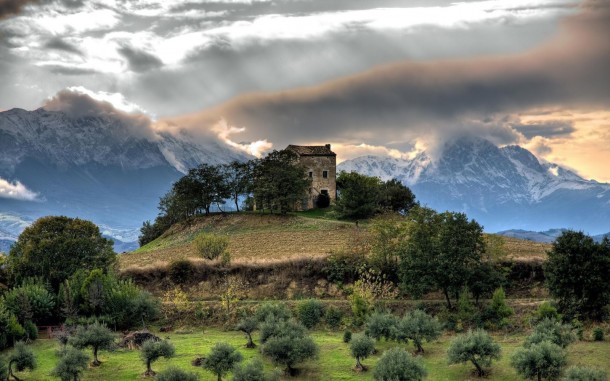Electricity in Bulgaria, electricity bills in Bulgaria
- on 01.04.14
- Bulgarian properties articles
- No Comments
For many years electricity in Bulgaria was supplied by the state. To meet EU competition requirements, the market has now been privatised, although this has increased prices rather than reduced them as in other countries, because under state provision prices were heavily subsidised.
There are three electricity companies in Bulgaria:
ŌĆó North and northeastern Bulgaria: E-on Bulgaria (German company);
ŌĆó Western Bulgaria: CEZ Bulgaria (Czech company);
ŌĆó South and southeastern Bulgaria: EVN Bulgaria (Austrian);
Electricity prices in Bulgaria remain low in comparison with other EU countries but are set┬Āto rise in the next few years. You are likely to consume more units each year than in the UK, because the winter months are colder and the hot summers increase the use of air-conditioning and electric fans. The average monthly bill for a family of four people in the summer is around 115 leva (┬Ż40), climbing to three┬Āor four times this amount in winter. There is monthly charges so if you do not use any electricity you will ┬Ābe billed but the tax is very small and varies depending on the installed power, roughly in the worst case you should expect about 15 leva (┬Ż6).
The table below gives prices for one of the electrical supply companies now operating in Bulgaria.
Zone in day ┬Ā ┬Ā ┬Ā ┬Ā ┬Ā ┬Ā ┬Ā ┬Ā ┬Ā ┬Ā ┬Ā ┬Ā ┬Ā ┬ĀPrice (lev/kWh) ┬Ā ┬Ā ┬Ā ┬Ā ┬Ā ┬Ā ┬Ā ┬ĀPrice ┬Ż/kWh) ┬Ā ┬Ā ┬Ā ┬Ā ┬Ā ┬Ā ┬Ā ┬Ā Price (Ōé¼/kWh)
With two scales
Day ┬Ā ┬Ā ┬Ā ┬Ā ┬Ā ┬Ā ┬Ā ┬Ā ┬Ā ┬Ā ┬Ā ┬Ā ┬Ā ┬Ā ┬Ā ┬Ā ┬Ā ┬Ā ┬Ā ┬Ā ┬Ā ┬Ā ┬Ā ┬Ā 0.07657 ┬Ā ┬Ā ┬Ā ┬Ā ┬Ā ┬Ā ┬Ā ┬Ā ┬Ā ┬Ā ┬Ā ┬Ā ┬Ā ┬Ā ┬Ā ┬Ā ┬Ā ┬Ā 0.027 ┬Ā ┬Ā ┬Ā ┬Ā ┬Ā ┬Ā ┬Ā ┬Ā ┬Ā ┬Ā ┬Ā ┬Ā ┬Ā ┬Ā ┬Ā ┬Ā ┬Ā ┬Ā ┬Ā 0.039
Night ┬Ā ┬Ā ┬Ā ┬Ā ┬Ā ┬Ā ┬Ā ┬Ā ┬Ā ┬Ā ┬Ā ┬Ā ┬Ā ┬Ā ┬Ā ┬Ā ┬Ā ┬Ā ┬Ā ┬Ā ┬Ā ┬Ā 0.02927 ┬Ā ┬Ā ┬Ā ┬Ā ┬Ā ┬Ā ┬Ā ┬Ā ┬Ā ┬Ā ┬Ā ┬Ā ┬Ā ┬Ā ┬Ā ┬Ā ┬Ā ┬Ā ┬Ā0.010 ┬Ā ┬Ā ┬Ā ┬Ā ┬Ā ┬Ā ┬Ā ┬Ā ┬Ā ┬Ā ┬Ā ┬Ā ┬Ā ┬Ā ┬Ā ┬Ā ┬Ā ┬Ā ┬Ā 0.015
With one scale ┬Ā ┬Ā ┬Ā ┬Ā ┬Ā ┬Ā ┬Ā ┬Ā ┬Ā ┬Ā ┬Ā ┬Ā ┬Ā0.07657 ┬Ā ┬Ā ┬Ā ┬Ā ┬Ā ┬Ā ┬Ā ┬Ā ┬Ā ┬Ā ┬Ā ┬Ā ┬Ā ┬Ā ┬Ā ┬Ā ┬Ā ┬Ā ┬Ā 0.027 ┬Ā ┬Ā ┬Ā ┬Ā ┬Ā ┬Ā ┬Ā ┬Ā ┬Ā ┬Ā ┬Ā ┬Ā ┬Ā ┬Ā ┬Ā ┬Ā ┬Ā ┬Ā ┬Ā0.039
As the table indicates, there is a night and day tariff. The night tariff generally runs from 10pm to 6am with slight variations depending on the time of year. If you are only registered for a single tariff, you can apply to pay for a change to the dual tariff system.
The electricity supply in Bulgaria is delivered to homes at 220V – 240V and with a frequency of 50Hz, so most UK electrical appliances will work in Bulgaria. Plug fittings are the two-pin type common throughout most of Europe, which means you will either have to change the plug on imported appliances or use an adapter. The latter is probably the best option, since the two-pin plugs do not incorporate fuses for overload protection.
Interruptions to the power supply are not so common in Bulgaria, the worst-affected areas tending to be rural ones where supplies can be cut for hours at a time. These cuts are usually caused by heavy rain, snow or lightning storm, or may be a result of maintenance work. Keep a supply of candles or other non-electrical light sources to see you through these frustrating occurrences, and consider an alternative source of heat such as a wood-burner or portable gas fire in case the interruption takes place in winter. Another problem encountered, particularly in rural areas, is the tripping of the main fuse while using multiple high-powered appliances. If this occurs frequently you should consider applying to the electrical company to upgrade the power supply to your property in Bulgaria.
When you buy a property in Bulgaria you should ensure that all existing bills have been paid, since the liability remains with the property, not the owner. The next step is to register a new name for future payments.
To transfer the bill into your name, take these documents to the offices of the electrical company:
ŌĆó your ID or passport.
ŌĆó a copy of the notary act/title deed.
ŌĆó a copy of the last bill paid by the previous owner.
To register the name of a tenant, take these documents to the offices of the electrical company:
ŌĆó the ID of the tenant.
ŌĆó a notarised rental contract.
ŌĆó a copy of the notary act.
ŌĆó a notarised declaration for joint liability of the owner and the tenant.
ŌĆó a copy of the last bill paid by the previous owner.
ŌĆó a notarised power of attorney (where the documents are presented by a representative).
To register the name of the company owning a property, take these documents to the electrical company:
ŌĆó company documents: a copy of the court authority (if the company is less than six months old) or document for current status of the company (issued not more than six months before the date of the submission) and Bulstat card [see p.128).
ŌĆó a company stamp.
ŌĆó a copy of the notary act.
ŌĆó a copy of the last bill paid by the previous owner.
ŌĆó a notarised power of attorney (where the documents are presented by a representative of the company who is not the director).
Bills in Bulgaria should be paid each month. If the meter is located inside your property then a representative from the electrical company will need to enter. If there is nobody to let them in, then an estimate will be made. Considerable efforts are now being made in Bulgaria, however, to ensure that all electrical meters are moved to outside properties for the sake of convenience and to prevent the need for estimates. Electrical companies pay for this. The electrical companies have been concentrating their efforts on urban areas, so in rural areas most meters remain inside properties.
Bills can be paid directly to the electrical company or through the post office, but queues can be long and it is easiest to arrange payment through your bank. The procedure varies between the banks and the different electrical companies, so check with the relevant parties. You may decide to leave payment in the care of an agent or property management company; in this case, arrange funds for them to make the payments.







Leave a Reply
You must be logged in to post a comment.